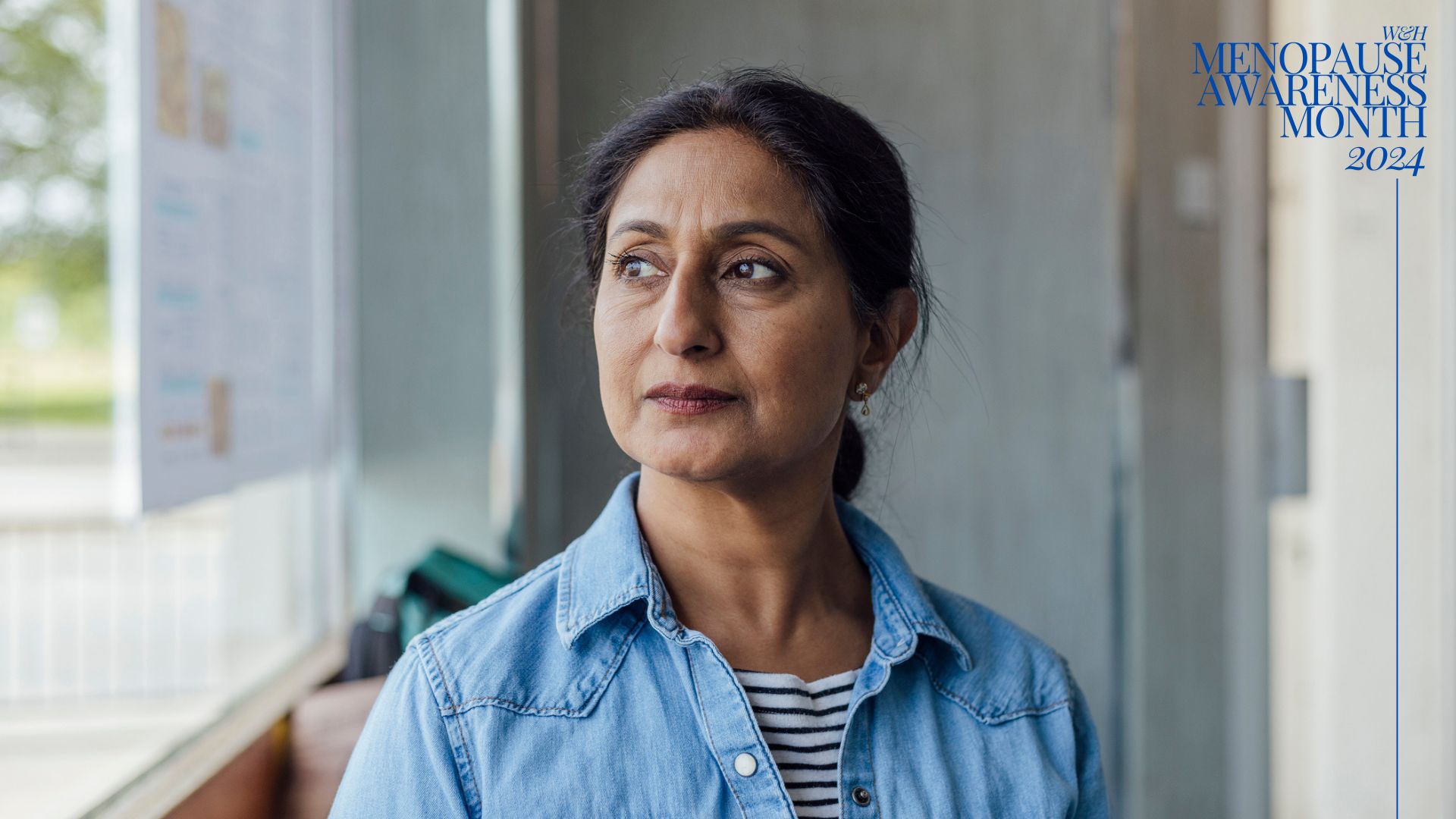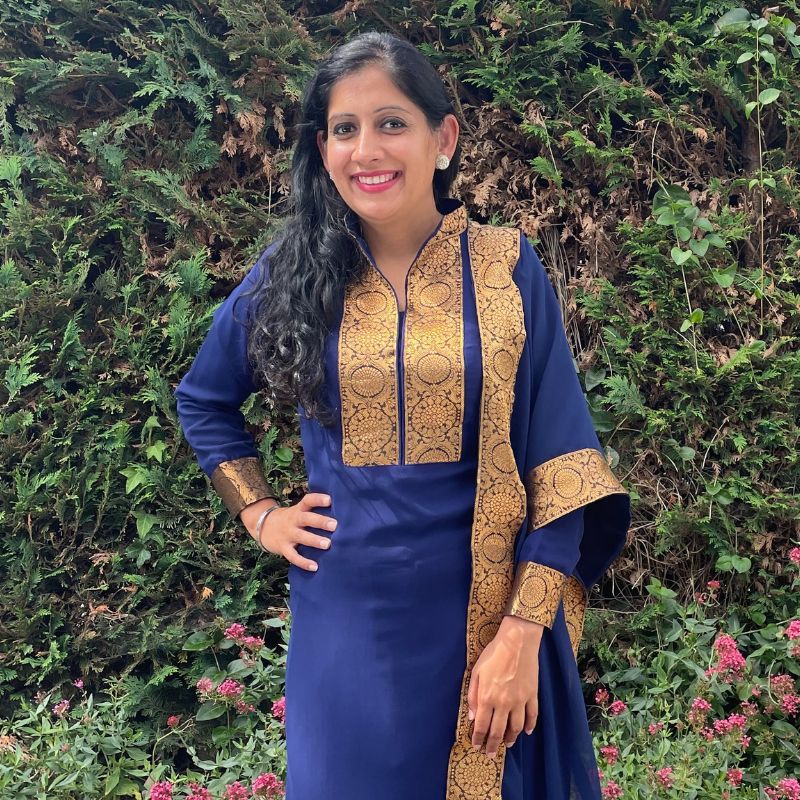We're getting better at talking about menopause - so why is there still stigma in the South Asian community?
Three women share their experiences of dealing with menopause stigma - from opening up the conversation to battling the myths around HRT


While the conversation around women's health issues like menopause is growing every day, it's clear that not every woman is being included in the discussion. In the South Asian community, it's still poorly understood or ignored in many cases, says Minreet Kaur.
It's thought there are currently 13 million people who are currently in perimenopause or menopausal in the UK - that's one in three women - and according to the most recent census, almost 18% are from ethnic minority backgrounds. Yet, there is little research dedicated to the experience of menopause and how it might differ for women in these communities. Couple that with a taboo of speaking about 'women's issues' for many at home and it's perhaps no surprise we've come to believe that menopause is a "white, middle-class problem" or a "Western phenomenon".
"My mother never mentioned anything to me about menopause," says Furrah Syed, 56, an artist and educator from London. "When I started talking about it when her son and my dad were in the room, she stopped me. This was a shameful topic to talk about in front of them. Since men don’t have to tackle any of these problems, it’s not [considered] that important. Anything hormonal was not discussed with my mum and it was never mentioned in my various family and parent’s friend’s circles," she says.
"But menopause was hell for me. Looking back, I'm surprised the women dealing with menopause symptoms didn't talk about it. I will never forget the full-on rush of anxiety that hit me out the blue during work events or even just going out shopping. The brain fog was debilitating in all aspects of my life. Physically, I felt terrible in many ways."
While the conversation around menopause has opened up in the last few years, information and representation is still missing for South Asian women like myself. It's a problem that Dr Shashi Prasad, GP and advanced menopause specialist, knows all too well. "It piqued my interest when I noted that less than 5% of women attending my menopause clinic were of South Asian origin," she tells woman&home. "I thought to myself - do South Asian women not suffer from menopause symptoms?”
This is obviously not true - but there is an expectation for women to stay silent and not talk about menopause that definitely persists. From my experience, even older women in the family will say "we went through it, so what's the big deal?"
"There is a significant lack of knowledge and awareness among women about menopause, its symptoms, and how to seek help," says the doctor, rooted in this 'just get on with it' mentality.
"Many women have a lack of understanding of hormone replacement therapy (HRT) as well as its benefits and risks among South Asian women. There's also the cultural belief that women don't want to put external hormones or medicine into their bodies to help what they believe to be a 'natural process' that women go through."

Speak to your doctor if you have any questions about hormone replacement therapy (HRT) or want to discuss other options to help manage symptoms.
Menopause differs for everyone so most people won't have an understanding of what perimenopause feels like until they are going though it. For Anita Guru, 43, from Surrey, hot flushes, brain fog and menopausal anxiety characterised her most troubling symptoms but she felt unable to discuss her symptoms with others. HRT helped her manage them and now she wants other women to know it can help them too.
“Many women don’t even realise they’re hitting menopause and put symptoms down to something else but [these symptoms] will have a knock-on effect at home and in relationships. If women understood their body and menopause, they would be more likely to recognise their symptoms and seek help rather than stay struggling," she says. "Men also need to be educated so they can understand their mother, wife, sister, or daughter when they go through this huge life change."
“When I mentioned taking HRT to some family members, there was a concern for things like cancer risk. I shared the positive impact it’s had on me and that there’s been a lot more research and backing for HRT to prevent other health conditions though," she says. "When people feel they can't talk about personal things, especially due to shame, they're going to feel more isolated and alone, which can then make the mental impact of menopause worse."
"I feel so much better for it"
Sharan from Glasgow, 49, works as a primary teacher. She's currently going through perimenopause and the stigma around HRT almost put her off, despite similarly difficult symptoms.
"When I was going to go on HRT patches, my mum and a couple of friends told me I shouldn't because they can cause cancer. But my reasoning (at the time) was that I, and many others my age, have younger children than our mums had. I needed to get back to myself as soon as possible to just be able to function during this time and couldn't afford to not go on HRT," she says.
"I took it upon myself to research and figure it out. Those I spoke to in the same situation knew as little as I did at the time. I began bringing it up with all my south Asian and non-Asian friends and family who are in my age group because we don’t know enough and we should talk about it and share information," she says.
Like many women, Sharan felt better after HRT. She's since come off it and found alternatives that suit her and also help with the symptoms, which is also possible for many women. "The diet, lifestyle, and mindset changes have made a massive improvement to my symptoms and my journey, and I feel so much better for it," she says.
"It will help make sure our daughters don't suffer like us"
There are signs that the conversation is changing though, at least between women, and the cycle of silence is one that I hope stops with this current generation.
"I wish there was support available in my Asian community about what women have to deal with when going through the menopause, so my own friends and I have been open to discuss what we are going through and have shared resources to support each other during the very complex journey," says Furrah.
"It's really important that your open up the conversation with your partner, family and friends. It's really important your partner realises what you are going through and supports you. Talking to other may help others open up too, and it will help make sure our daughters don't suffer like us," says Dr Prasad.
Equally, practitioners like Dr Prasad are keen to encourage those dealing with symptoms to seek professional help, rather than suffer in silence. "If you are unsure who to see, ask the reception if there is a doctor or nurse in your practice who has an interest in menopause," she suggests. "If you struggle with English, don't hesitate to take someone who can help you understand things better either, or ask for an interpreter."
Sign up for the woman&home newsletter
Sign up to our free daily email for the latest royal and entertainment news, interesting opinion, expert advice on styling and beauty trends, and no-nonsense guides to the health and wellness questions you want answered.
Minreet Kaur is an award-winning journalist, having won report of the year for Skipping Sikh MBE. She has a lot of experience writing on health and wellness as well as culture, feminism, and religion, as featured in the Guardian, Telegraph, Metro, iNews, BBC, Sky, as well as on various radio and television channels.
Bringing together her passion for swimming and running with her desire to encourage others in the South Asian community to get more active through exercise, Minreet became a swimming teacher after the lockdown in 2020 and has since set up a swimming club.
-
 My mattress was too firm and too hot until I invested in the Soak&Sleep Topper
My mattress was too firm and too hot until I invested in the Soak&Sleep TopperThe Soak&Sleep Cooling Foam Mattress Topper is a godsend for relieving aches and pains, whilst making your bed cooler. As a foam option, it's one of the best.
By Laura Honey
-
 Sienna Miller wears the Sezane Clyde trench coat in a new colour - this means it's officially a must-have
Sienna Miller wears the Sezane Clyde trench coat in a new colour - this means it's officially a must-haveSienna Miller confirms the iconic status of this viral trench coat
By Molly Smith